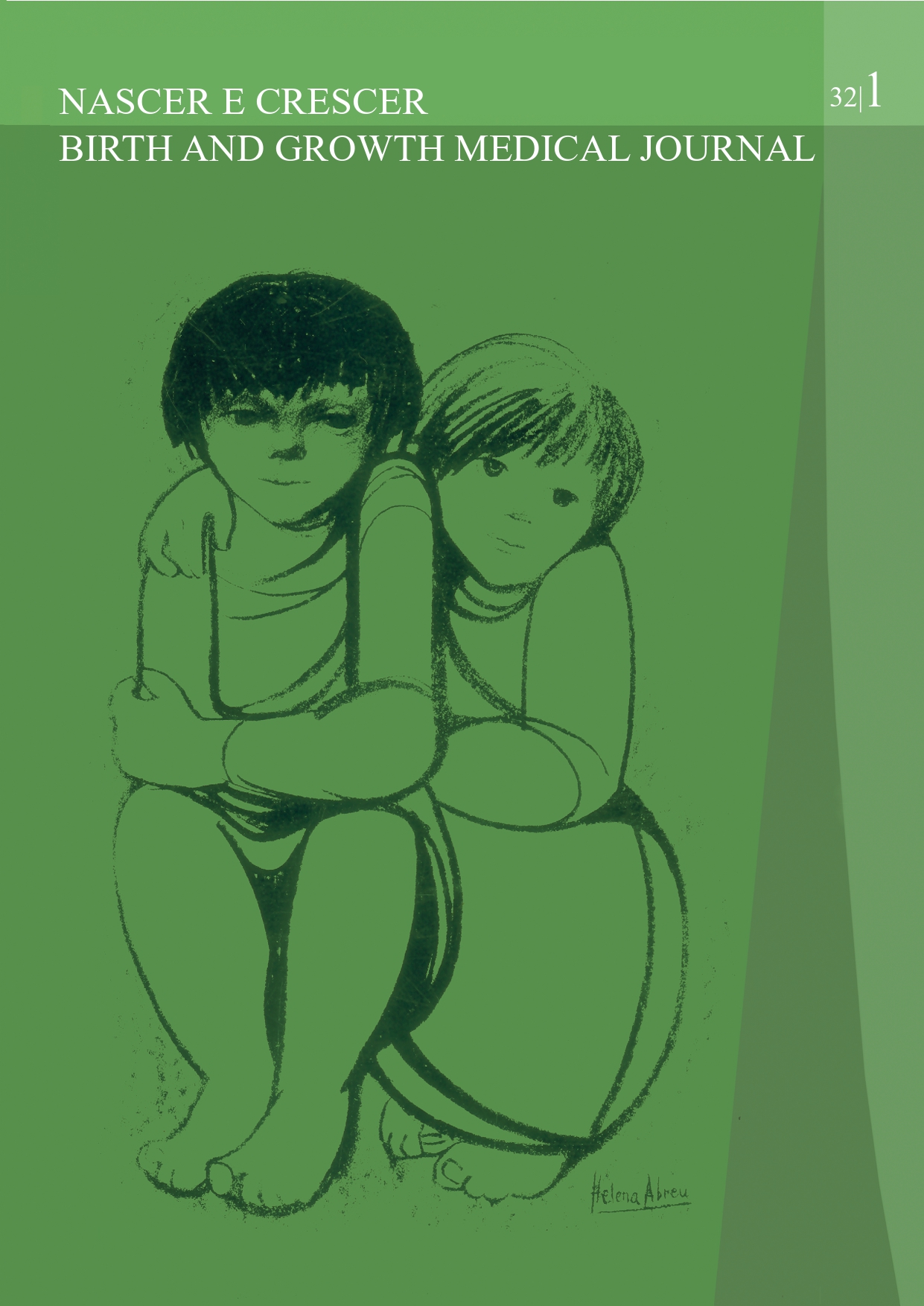Trichotillomania, obsessive-compulsive symptoms, and methylphenidate − Is there a link?
DOI:
https://doi.org/10.25753/BirthGrowthMJ.v32.i1.25482Keywords:
methylphenidate, obsessive-compulsive symptoms, psychostimulant, trichotillomaniaAbstract
Introduction: Psychostimulants, especially methylphenidate (MPH), are established treatments for attention-deficit/hyperactivity disorder (ADHD) in children and adolescents. Their common side effects are well known, and, although trichotillomania (TTM) and obsessive-compulsive symptoms (OCS) are not formally listed among them, they are reported in the literature. This study describes a case of TTM and OCS associated with the use of MPH.
Clinical Case: A nine-year-old boy was referred to the Infant and Adolescence Psychiatry consultation due to obsessive thoughts and TTM. He presented to the first appointment already medicated with immediate-release MPH.
Discussion: The time span between MPH intake and the presentation of TTM and OCS, together with their resolution in the absence of MPH, raised clinical suspicion of an association between MPH and these conditions.
Conclusion: Although TTM and OCS can coexist with ADHD, it was not until MPH exposure that they were observed in the present case.
Downloads
References
Coskun, M. Methyllphenidate Induced Obsessive- Compulsive Symptoms treated with Sertraline, Klinil Psikofarmakologi-Bulletin of Clinical Psychopharmacology. 2001; 21:3, 275-6.
Storebø OJ, Krogh HB, Ramstad E, Moreira-Maia CR, Holmskov M, Skoog M, et al. Methylphenidate for attention-deficit/hyperactivity disorder in children and adolescents: Cochrane systematic review with meta-analyses and trial sequential analyses of randomised clinical trials. BMJ. 2015;351:h5203.
Kouris S. Methylphenidate-induced obsessive-compulsiveness J Am Acad Child Adolesc Psychiatry 1998; 37(2):135.
Borcherding BG, Keysor CS, Rapoport JL, Elia J, Amass J. Motor/ vocal tics and compulsive behaviors on stimulant drugs: is there a common vulnerability? Psychiatry Res 1990;33(1):83-94.
Woolley JB, Heyman I. Dexamphetamine for obsessive-compulsive disorder. Am J Psychiatry 2003;160(1):183.
Diagnostic and Statistical Manual of Mental Disorders, Fifth Edition. Arlington, VA, American Psychiatric Association, 2013.
Abramovitch A, Dar R, Mittelman A, Wilhelm S. Comorbidity Between Attention Deficit/Hyperactivity Disorder and Obsessive-Compulsive Disorder Across the Life span: A Systematic and Critical Review. Harv Rev Psychiatry. 2015; 23(4):245-62.
Borcherding BG, Keysor CS, Rapoport JL, Elia J, Amass J. Motor/vocal tics and compulsive behaviors on stimulant drugs: is there a common vulnerability? Psychiatry Res. 1990 Jul;33(1):83-94. doi: https://doi.org/10.1016/0165-1781(90)90151-t.
Martin A, Scahill L, Vitulano L, King RA. Stimulant use and trichotillomania. J Am Acad Child Adolesc Psychiatry. 1998; 37(4):349-50.
Gunes S. Modified-Release Methylphenidate-Related Trichotillomania in a Boy with Autism Spectrum Disorder. J Child Adolesc Psycopharmacol. 2017; 27(7):675-6.
Kara T, Akaltum I. Trichotillomania in Attention-Deficit/ Hyperactivity Disorder Under Methylphenidate Treatment. J Clin Psycopharmacol. 2017; 37(4):48.
Woods DW, Houghton DC. Diagnosis, evaluation, and management of trichotillomania. Psychiatr Clin North Am. 2014; 37:301–17.
American Psychiatric Association. DSM-5: Manual Diagnóstico y Estadístico de los Trastornos Mentales. 5a ed. Madrid: Panamericana; 2014.
Pourcher E, Rémillard S, Cohen H. Compulsive habits in restless legs syndrome patients under dopaminergic treatment. J Neurol Sci. 2010;290: 52–6.
Lepelletier FX, Tauber C, Nicolas C, et al. Prenatal exposure to methylphenidate affects the dopamine system and the reactivity to natural reward in adulthood in rats. Int J Neuropsychopharmacology. 2009; 57(7-8):640-52
Downloads
Published
How to Cite
Issue
Section
License
Copyright (c) 2023 Marta Antunes, Inês Aguiar

This work is licensed under a Creative Commons Attribution-NonCommercial 4.0 International License.
Copyright and Authors' Rights
All articles published in Nascer e Crescer - Birth and Growth Medical Journal are Open Access and comply with the requirements of funding agencies or academic institutions. For use by third parties, Nascer e Crescer - Birth and Growth Medical Journal adheres to the terms of the Creative Commons License "Attribution - Non-Commercial Use (CC-BY-NC)".
It is the author's responsibility to obtain permission to reproduce figures, tables, etc. from other publications.
Authors must submit a Conflict of Interest statement and an Authorship Form with the submission of the article. An e-mail will be sent to the corresponding author confirming receipt of the manuscript.
Authors are permitted to make their articles available in repositories at their home institutions, provided that they always indicate where the articles were published and adhere to the terms of the Creative Commons license.


